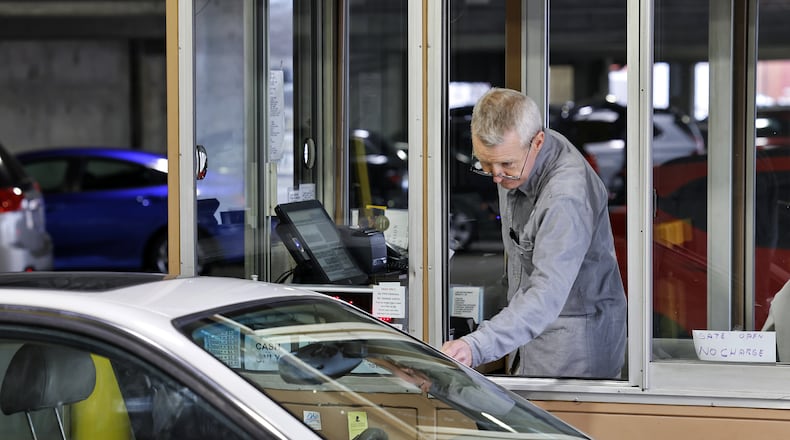Now, Carpenter is calling it their “new age” garage since she and her fellow commissioners gave the green light to spend $200,000 to fully automate the garage that will be open 24/7 and drivers can use cash or credit to pay. The project, that means more revenues can be generated, should be completed by the end of this quarter.
“I think the key to making it successful is just making it easy to use, if we achieve that goal we’ve done something very beneficial for the public..., Carpenter said. “I’m not as worried about the revenue source as I am about making it convenient to the public, because we’ve been able to generate enough revenue to maintain that garage.”
The 600-space garage currently operates as a cash-only, pay-at-the-gate operation. Proposals through the years to automate the garage, making it more user-friendly and generating revenue from community events several years ago ranged from $100,000 to $400,000.
Chris Hacker, the county’s asset, purchasing and projects director, said he did not need to bid the project because the software system that operates the garage systems was already in place. The entrance and exits will look the same except there will not be a garage attendant manning the booth on Court Street anymore.
There will be a pay station that takes cash or credit in the first floor lobby of the garage and another inside the GSC by the breezeway that connects the two buildings on the second floor.
There are a number of different parking arrangements at the garage. People can pay $40 a month for a reserved spot, jurors and law enforcement and fire officials from county jurisdictions and some others park for free and then daily parkers who pay a maximum of $6.50. There will be an online pay option for monthly parking.
Hacker said now that they can eliminate the separate daily rate and monthly parker lanes coming down to the exit, they can add some more parking spots along that ramp which will enhance the bottom line.
There used to be two part-time garage attendants who earned $31,000 collectively. According to County Administrator Judi Boyko, one has retired and the other filled a vacancy in the county’s mailroom.
The full-time parking attendant will still be there to “troubleshoot” and make sure everything is working properly.
The other commissioners early on said the automation project needed to have a decent return on investment. Boyko said the county estimates a “five-year ROI based on cost for automation, increased revenues and reduced costs.” She said she expects revenues will increase roughly 18- to 20-percent, or about $35,000 annually.
Entertainment and events have picked up significantly in Hamilton since the county first started discussing automation, such as the giant Spooky Nook sports and convention venue that is under construction. Commissioner T.C. Rogers said having a fully automated garage will allow them to capitalize on all the activity.
“I think it’s a solid investment especially with what’s happening in the city of Hamilton,” Rogers said. “Parking is going to be more of a premium in the non-business hours.”
Another sign of the times that makes automation an especially good project is the severe labor shortage everyone is facing as fallout of the pandemic, according to Commissioner Don Dixon. He said “it makes sense to eliminate the one headache” of finding people to work in the garage and the price tag was acceptable.
Hacker said once the automation project is complete the “cash only” signs will come down and there will be plenty of signage to let people know the new parking process.
About the Author

